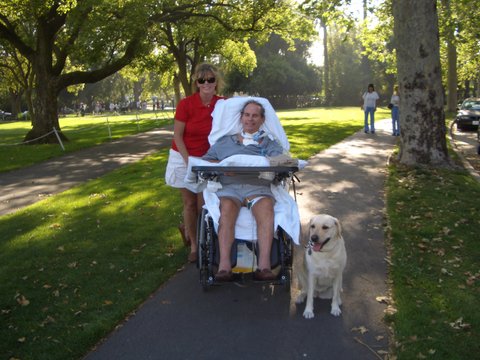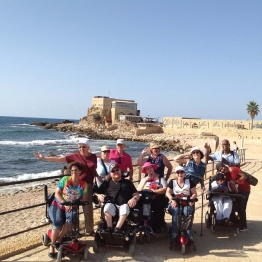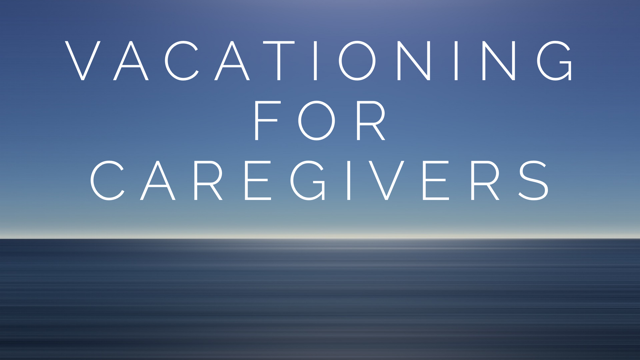Vacations and caregiving may not seem like natural partners, but they can be.
Almost everyone needs an occasional break from their every day lives, and for caregivers and their loved ones, these breaks can be of vital importance to both mental and emotional health. Caregiving often drains the wells of resiliency causing both physical and mental ailments, so taking a few days away may be one needed step toward healing. In addition, many loved ones who suffer from a health issue may also have a corollary depression, and a change of scene might be the perfect antidote.
Planned breaks can lift the spirits by providing something to anticipate, something to enjoy, and something to fondly remember. In addition, a break for relaxation and enjoyment can build up resilience and allow time to heal from every-day stresses, whether they stem from being ill or caring for the ill person.
Yet, vacations can also seem difficult when health and caregiving issues add an extra layer of complication. Perhaps a loved one is too ill for an overnight trip, or maybe the expense is an issue. No matter what the problem is, if you think creatively, there will be some way to find time for a break.
Here are some tips to get you started.
1) Think Small
Take a small first step. Is there a place of beauty near your home? Plan a trip there. A picnic in a shady park or a visit to a bluff overlooking the beach might be all that’s needed for a few hours vacation from ordinary life. Even a trip to the movies or a museum can provide a break from your daily routine, so if you haven’t taken time to sight-see in your hometown, give it a try.

2) Go Alone
Often more than anything, caregivers need time for themselves. Both respite and the support of others are vital for caregivers. So investigate options that would allow someone else to take over for a few days, so you can get some needed recuperation time. Think of what you would like to do most. Maybe you want serene time alone in the woods or maybe you would prefer to dance and socialize on a cruise ship. Whatever would provide the most fun and healing for you, give it a go.
3) Think Creatively
If you’d like to vacation with your loved one, be creative in making it happen. For example, easyaccesstravel.com helps plan trips for people with disabilities, and the website has tips for traveling with wheelchairs and oxygen tanks. Airlines also can have helpful links on their websites. Or maybe flying is too expensive or challenging, and a short road trip to a nearby relative would best provide the needed change of scene. Bounce ideas off your friends to figure out the possibilities, then choose one and make it happen.

4) Don’t Give Up
Planning a vacation can be an organizational headache, but don’t let that stop you. Anticipate that the planning might be a bit complicated, especially with your many responsibilities. Try to find the joy in the planning though. Often with vacations, anticipation is a big part of the fun, so as you’re puzzling out what would work, applaud yourself for each planning hurdle you overcome.
Vacations never go exactly as planned, which is okay. Part of the idea of a vacation is stepping away from the normal routine of life and enjoying something different. So whatever your vacation brings you, take time to enjoy it. This time is all about you. — Kathi Koll


